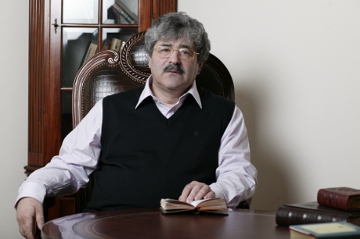
Part 1
Receiving the Nobel Prize in Oslo, US president B. Obama painted a grim picture of the problems the world would have to face if — not getting the due assistance from other countries — the US lost the war in Afghanistan. At the moment, it would be unfair to complain that the NATO allies, Russia, and several other countries did not help the US in the Afghan campaign. While the Talib forces in Afghanistan are no match to those of the Western coalition with the US at the helm, the key objective behind the mission — to make launching new terrorist attacks against the US or other countries from the Afghan territory impossible - remains out of reach after nine years of efforts. History routinely dispels triumphalist illusions of those who tend to rely excessively on military might.
The natural comparison between the 1979-1989 Soviet and the current US-led campaigns in Afghanistan highlights the fact that, confronted by the Mujahidins who were backed by the US and other countries, the Soviet forces in Afghanistan never enjoyed the vast superiority over their enemy such as the one the Western coalition maintains in the country nowadays. The budget of the Soviet war in Afghanistan was also fairly modest compared to the amounts of money poured by the US into the Afghan campaign. In this light, it may seem surprising that the US control over the Afghan territory is chronically patchy and that the Talib leaders are not serially standing trials in the Hague yet.
Roughly at the same time the Soviet Union made the historical mistake of invading Afghanistan the US made a no less tragic mistake of engaging with radical Muslim sects which the international community now has to fight. It is widely believed that currently the US is falling into the same traps in Afghanistan as the USSR did in the distant epoch of the Soviet campaign, but there is more logic in the view that Washington is accumulating mistakes of its own which stem from the past US collaboration with the Talibs. Moreover, under the new Administration the US reanimated the policy of allying the Talibs.
Till the very September 11 drama, appeasing the Talibs was a basic element of the international community's Afghan strategy which can be traced back to Pakistani president Pervez Musharraf who helped the Talibs gain and retain the grip on power in the country. Recently the Western pressure did force Pakistan to launch anti-Talib raids which came at the cost of the lives 3,000 Pakistani soldiers. Shortly thereafter Islamabad declared a truce with the Talibs and even cast it into the form of written accords. Le Monde Diplomatique noted that the temporary success of the tactic convinced Great Britain to follow the lead and draw a line between the Talib radicals and moderates and to cede to the latter control over several Afghan provinces such as the Musa Qala.
The US used to reject the idea of and neutralize any attempts at negotiating with the Talibs at the early phase of the Afghan campaign, but at the moment Washington is calling Afghanistan's president Hamid Karzai to integrate the Talib moderates. Still, bringing in from various places a bunch of people with typical Talib appearances, branding them moderates, and getting them to imitate talks may be a relatively simple task but telling moderates from radicals in the perturbed Afghan settings clearly is not. The impression is that the Afghan reconciliation is modeled on that in Northern Ireland where the IRA political realists and extremists had existed more or less separately for years. In Afghanistan, an approach based on a similar vision is doomed to failure and any tactic success in the course of its implementation is a trap from the strategic viewpoint.
On top of that, Washington persistently fails to realize to what extent the drug business problem factors into the Afghan turmoil. Russian and European experts alike hold that crushing the extremist resistance in Afghanistan would take serious steps aimed at suppressing the country's drug production which rose by a factor of 40 since the advent of the Western coalition. Russia whose death toll attributable to drug consumption is estimated at 30,000-40,000 annually is the number one victim of the Afghan drug outflow, but even in the NATO countries the numbers of fatalities caused by heroin overdoses far exceed the casualties suffered by the Western coalition in Afghanistan.
Recently NATO and Russia jointly annihilated a couple of Afghan drug factories. It is a positive development that the cooperation in fighting the drug business in Afghanistan is being put on track, but, considering that hundreds of those remain on-line and that the country's opiates stockpile can sustain the Afghan drug output at the current level for another 100 years, we are making the very first steps along the road. Undercutting drug production in Afghanistan would disrupt the financial flows feeding the terrorists as well as induce internal divisions in the Taliban and create conditions for the country's economic sanation. Over 1,000,000 Afghans are drug addicts and a high percentage of Afghan farmers earn their living by opium poppy cultivation, but perhaps the reckoning of NATO planners is that widespread unemployment would present the Western coalition with a much more serious problem as jobless Afghans would be readily joining the Afghan insurgency. The cynical notion is at odds with the economic reality. First, the Taliban owes much of its financial base to the drug production and unemployed Afghans would not be flocking to the Talib camps once the insurgency's cash reserves dry up as a result of the drug business decline. Secondly, under the current circumstances Karzai's administration lacks the stimuli to rebuild Afghanistan's normal agriculture which could be viable in Afghanistan considering that in the past the country was self-sufficient in terms of food supply.
read more in our Telegram-channel https://t.me/The_International_Affairs

 14:46 12.02.2010 •
14:46 12.02.2010 •






















